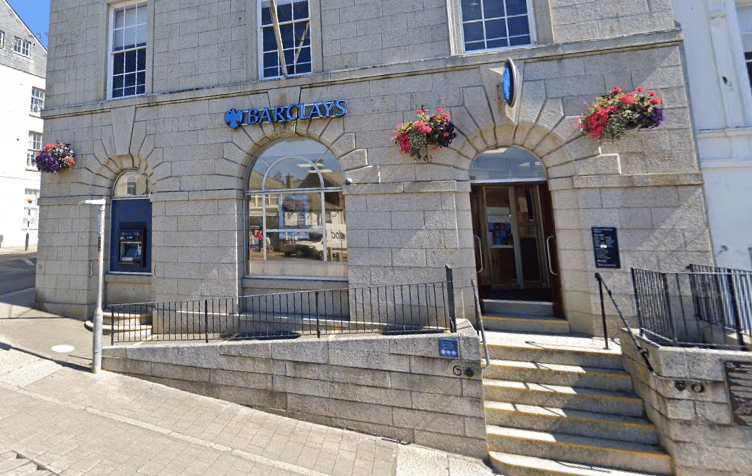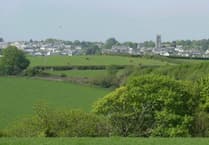EACH week, hundreds of planning applications come before Cornwall Council’s planning department, seeking to win approval for various plans right across the Duchy.
These plans can comprise of a number of different reasonings – ranging from permission to replace windows or listed building consent ranging up to large house building developments or changing of use of a building, for instance, from an office to a café, or flats.
Within this large and often complex system, there are a number of formats from which planning advice and approval can be sought.
These range from full applications where all the details which comprise a proposed development or work to a building are submitted, to outline applications, where further details are yet to be confirmed, for example, an outline application with reserved matters for appearance may not confirm the final proposed development but rather seek permission in principle.
An example of this is one for an outline permission for 20 dwellings on land with reserved matters for appearance and scale; the reserved matters would require further permission later for their inclusion.
Other types of applications include pre-application advice requests, where would-be developers submit often outline proposals to a local authority to ascertain whether it is likely to gain support or not prior to submitting a planning application.
The vast majority of applications are decided by planning officers employed by a local authority under ‘delegated powers’, meaning they do so on behalf of their employer, however, some applications are ‘called in’ by local councillors to be discussed at an area’s strategic planning committee meeting, meaning the final decision rests with a committee of councillors.
Removal of Section 106 obligations refused
Cornwall Council has refused an application to remove the obligations placed under a Section 106 planning condition.
Mr Ravi Gupta applied to the authority with an application to modify or discharge of a planning obligation and restrictions which were set as part of planning approval for the removal of holiday occupancy conditions from 28 lodges associated with the Hustyn’s holiday resort.
The permission had been granted subject to the applicant entering into a Section 106 planning obligation to make the development acceptable.
This comprised of nine parts, namely: access to the brasserie for community groups as a meeting space, use of the brasserie for graduation events by community groups, provision of lifeguard and first aid courses free of charge for children under 16, free access to the play park, tennis court and crazy golf, use of the stables by a community group, use of the community garden by a community group, school access to the swimming pool and provision of access to the polytunnels for lodge owners to encourage use of the allotments.
The applicant sought to remove these requirements.
They cited six reasons, including financial concerns over not doing so.
These were: that at no time has any of the Schedule 2 obligations and restrictions referred therein have been exercised.
“The applicant has encountered financial difficulties in maintaining the full scope of the hotel and spa and has to recently, close the spa, do a round of redundancies, and more recently, has done a round of layoffs. Currently, both the hotel restaurant and brasserie are closed.
“As such, the Applicant is unable to fulfil his obligations to allow use of the brasserie and restaurant.
“Further, the Applicant has a potential buyer who would like to add value and do a general refurbishment with a substantial investment.
“The potential buyer is unable to complete the purchase with these obligations in place.
“Without the lifting of these schedule two obligations, the hotel faces a very real chance of complete closure.”.
However, these reasons were refused by Cornwall Council, who refused to permit the amendment.
They said in response: “No evidence has been provided to suggest that the s106 no longer serves a useful purpose beyond to say that none of the provisions within the obligation have been taken up by community groups. It is unclear the reasons underpinning this lack of uptake, and it cannot be concluded that this demand / uptake will necessarily persist going forward. Furthermore, it is also noted that the applicant indicates in his submission that some of the facilities, namely the spa, brasserie and restaurant, are currently closed, and some staff have been laid off. This lack of availability will inevitably perpetuate further lack of usage by community groups.
“The applicant has highlighted the financial difficulties facing the resort, but this has not been evidenced. It is asserted that the potential buyer is unable to complete the purchase with these obligations in place, but no supporting correspondence has been submitted to attest to this position, nor has any commentary been provided attesting to why a future owner would not be able to honour the commitments of the obligation. These commitments were considered acceptable and workable when the agreement was entered into and must not at the time have been considered to impose an undue operational burden on or impact the commercial viability of the enterprise.
“It is considered that the lack of uptake to date is insufficient, particularly in light of the unavailability of facilities, to conclude that the obligation no longer serves a useful purpose. It is possible that future owners would want to reopen the said facilities and may be able to do so on a commercially viable footing.”
Refurbishment of former bank into offices
Planning permission is not likely to be required for the refurbishment of a former banking hall and offices on ground, first and part second floors to form more retail and office space in Liskeard.
On Parole Ltd sent Cornwall Council a pre-application assessment enquiry to gain advice from the authority’s planning team prior to
The background was surmised as: “This pre-application enquiry refers to the former Barclays Bank building located in the centre of Liskeard and within a designated Conservation Area. The building is positioned on a corner plot with a large footprint. The building can be described in two halves, the southern most part consists of a stone built, three storeys building in addition to a basement, and is grade two listed.
“The northern section consists of a single storey more modern addition and is connected to the main building. To the northwest lies an area of off-road parking with vehicular access onto Pound Street. A much smaller area of hardstanding lies to the northwest with access onto Greenbank Road, offering what appears to be pedestrian access into the offices occupying the single storey building.”
It further detailed what the use of the building will be: “This pre-applicant enquiry seeks advice primarily regarding the restoration and use of the former bank building and offices for 3D printing to produces moulded products for use in the medical/health sector, a retails product area and fitting rooms and offices. Notwithstanding the planning policies as listed, we must first consider whether planning permission would be required for the proposed use.”
There would be no change to the second floor flat above the bank which is in separate ownership.
In response, the council told the applicant: “To summarise, planning permission is not considered to be required for the proposed use of the building or the physical works as set out within the application form (other than the replacement signage which may require consent).
“However, a Listed Building Consent application will be required for the proposed physical works (internal and external). The LBC application should be supported by an appropriate Historic Impact Assessment and consideration will need to be given to the policies as listed in the report above.”
Keep up to date with the latest planning applications and other statutory notices (such as alcohol licensing and probates) that affect where you live by visiting our online Public Notice Portal – be the first to know by visiting www.publicnoticeportal.uk/cornish-times-series.





Comments
This article has no comments yet. Be the first to leave a comment.